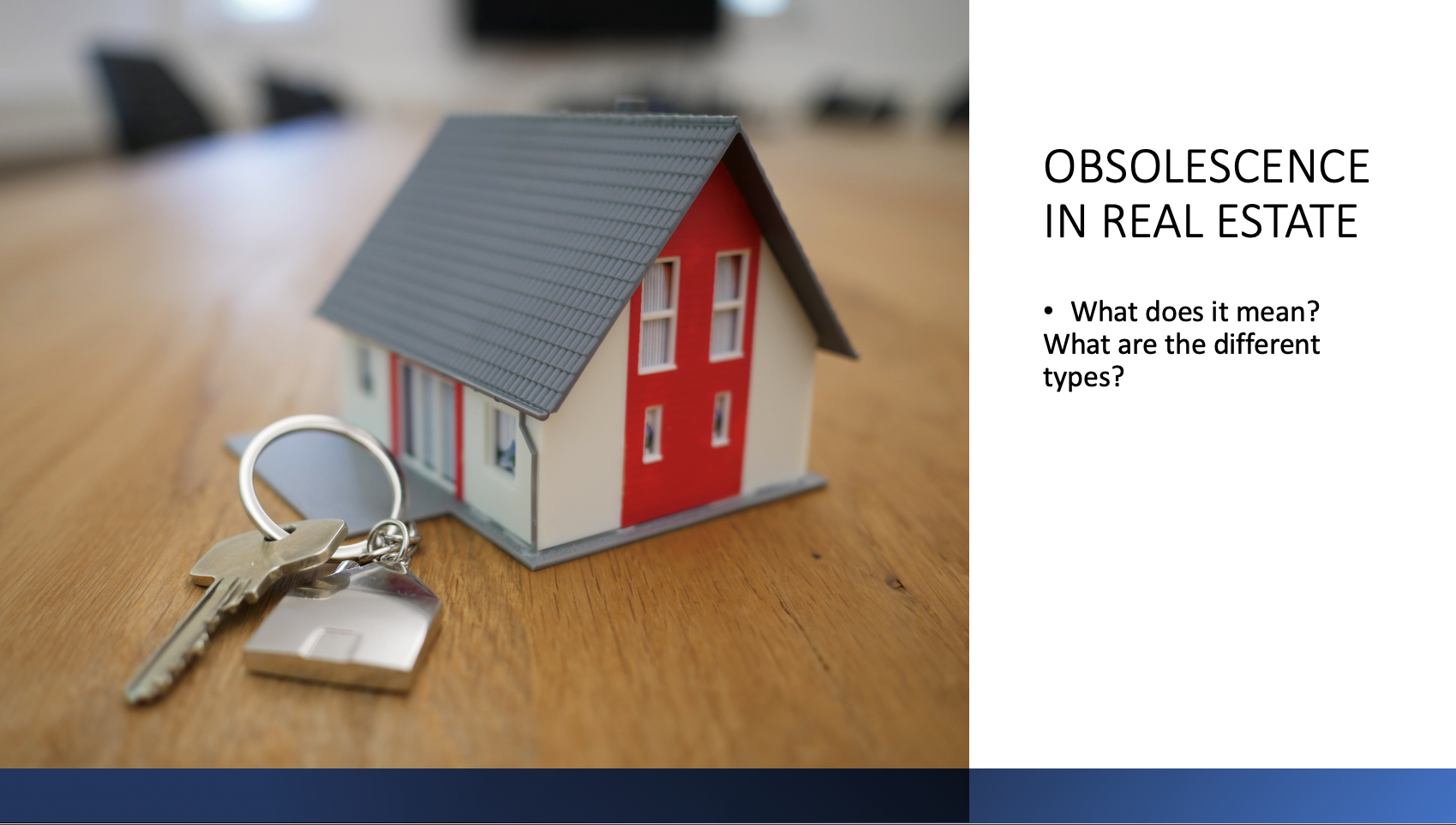OBSOLESCENCE IN REAL ESTATE

What is Obsolescence?
In real estate, obsolescence refers to the loss of value of a property caused by external factors. Often, these factors are not fixable by the owner and therefore run quite a bit of risk.
There are various types of obsolescence, so let’s break them down.
Economic Obsolescence
Physical Obsolescence
Functional Obsolescence
Economic Obsolescence
This refers to the depreciation in the market value of a property that occurs due to external and uncontrollable factors.
Some examples of economic obsolescence include:
Rise in crime
Job loss
Construction of jail
Construction of sewage treatment plant
Zoning changes
Traffic changes
Example
To put it into perspective, if you had just moved into a new house with your family and they begin constructing a jail or a sewage treatment plant, all of a sudden, the value of that house may go down because of fear of being in close proximity to convicted criminals may make buyers uncomfortable, or in case of the sewage treatment, people would have to deal with sewage odor.
In these events, the owner of a property has no control over the changes, but they have to deal with the consequences anyway. Three things occur as a result; vacancy rates increase, leading to a drop in the rent values; consequently, resulting in a decrease in the property prices. In order to keep these properties occupied, potential tenants must view the price as a good deal to overlook the negative aspects of the property.
This type of obsolescence is usually incurable. Owners can sell their property at a loss or simply learn to live with the negative changes that have occurred.
Physical Obsolescence
Physical obsolescence describes property value decline that occurs as a result of physical depreciation or gross mismanagement. All properties’ physical environment is liable to deteriorate over time, but this type of obsolescence refers to more severe deterioration that happens without proper maintenance. When maintenance is neglected, the property can degrade beyond desirability.
Example
Imagine if your landlord continuously ignores requests to fix the draining and pipage in your property. The sinks are constantly backed up, the toilets get clogged frequently, none of the pipes seems to be working properly. Eventually, everything is likely to back up and flood, damaging the floors, the pipes, everything in the house. This is a situation where the owner ignored the maintenance to the point of ruining aspects of the property. As a result, the property isn’t safe or desirable, and thus, its value decreases.
Physical obsolescence can be curable but depending on the replacement cost to fix the issue; sometimes the price isn’t worth it.
Functional Obsolescence
Functional Obsolescence is when the property value changes because of market standards. Property may become functionally obsolete when the technology, design, or amenities no longer fit the expectations of current tenants. Nowadays, tenants expect high-speed internet, strong cell service, and high-standard security. Because this is widespread and accepted in modern times, any place without it is considered outdated and, thus, less valuable. Modern people can’t reside in places without the internet, especially given the situation with COVID forcing most of us to work from home.
Properties may be curable or incurable in their functional obsolescence. If a property can be renovated to bring the property up to date and cost-efficient then it is considered curable obsolescence. If not, it is deemed to be incurable.
The risk of obsolescence is concerning because it is most often out of the owner’s hands. For this reason, you need to do your due diligence before purchasing properties. Have the foresight to think and research about factors that may affect the value of your property in the long run.
Some ways to protect yourself include getting an appraisal or planning ahead. Assessors summarize obsolescence conclusions in their reports, which then allows an assessment for the cost of repair to take place. This appraisal could save you thousands of dollars if they catch any obsolescence before purchase. Another useful thing to do before purchasing a property is to consider your plan for addressing any obsolescence should they arise.
If you have any questions or would like to know more, please reach out!
